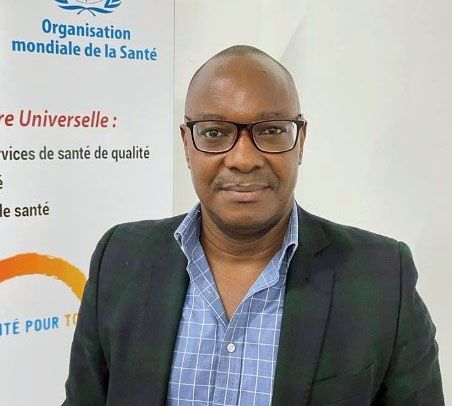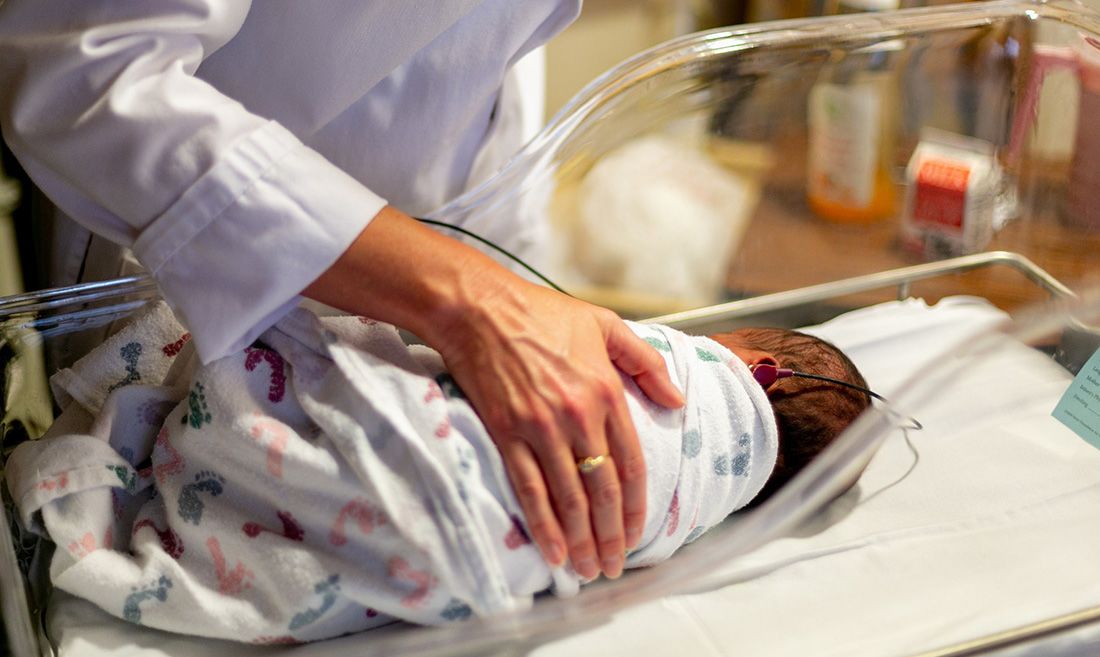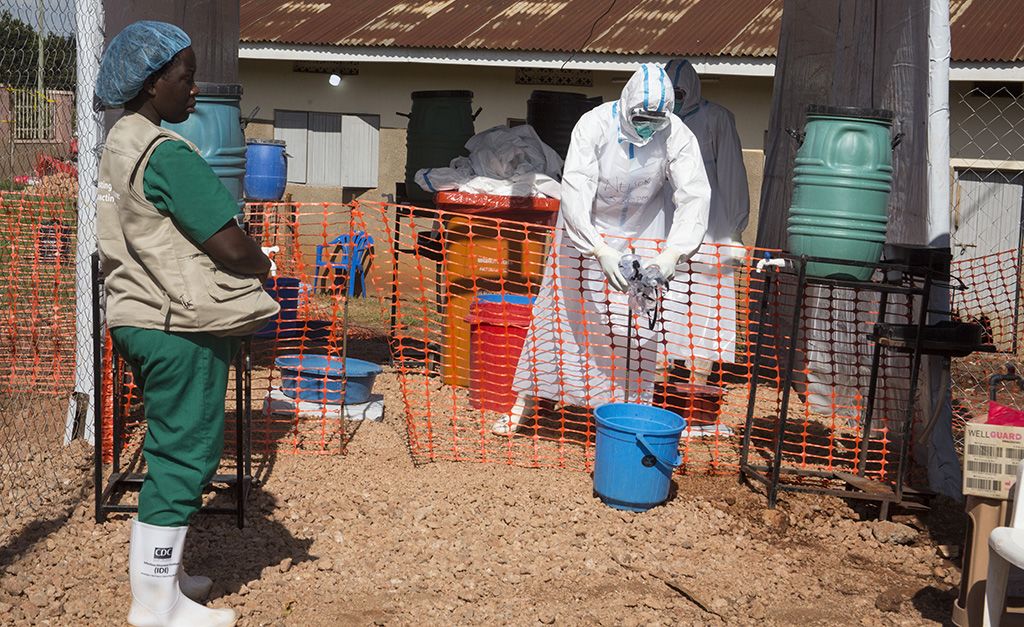Leeds at the WHO: Guy Mbayo
Leeds graduate Guy Mbayo is the Regional Advisor, Water, Sanitation and Hygiene, for the Africa region of the World Health Organization (WHO).

Guy Mbayo works to prevent disease and death through improving sanitation and hygiene.
Guy Mbayo works to prevent disease and death through improving sanitation and hygiene.
Guy Mbayo graduated in 2005 with a Masters of Science in Environmental Engineering and Project Management. With more than 30 years of global experience, Guy tells us about improving public health in Africa through water, sanitation and hygiene.
What is WASH and how is the WHO involved?
The acronym WASH, meaning Water, Sanitation and Hygiene, covers a broad range of approaches to health prevention. It could refer to safe water supply, disseminating information about hygiene, waste management, national and local infrastructure and much more.
From the WHO’s perspective, WASH contributes to quality healthcare and reduced maternal and neonatal mortality. It can also help reduce risk of infections in a context of increasing anti-microbial resistance.
Improvements in WASH will help countries meet their commitments to the global Sustainable Development Goals, the Africa Agenda 2063 and other regional goals.

WASH projects reduce maternal and neonatal deaths.
WASH projects reduce maternal and neonatal deaths.
My overall objective is to reduce morbidity, mortality and disability through the prevention, control, eradication or elimination of selected communicable and non-communicable diseases.
I contribute to reducing environmental risk factors of ill health and the environmental burden of disease. This can be done through regularly assessing environmental risks to human health and cost-effective preventive interventions.
I support African WHO member states to develop strategies and policies that will help them to improve the level of access to WASH facilities in all settings.
Ingenuity and innovation enabled even those with limited access to water and soap to perform hand hygiene.
I contribute to the strengthening and capacity building of institutions at all levels and I often facilitate training sessions. I bring together south to south or north to south exchanges for the transfer of knowledge and funds.
Sanitation played a critical role in the fight against Covid-19. What were you doing at the WHO during this time?
During the pandemic, I was still doing the same tasks. I was actually identified as core staff for preparedness and response within the region.
One area I was involved with was facilitating community behavioural change. I supported countries to develop and disseminate information packages and guidelines on WASH and Covid-19. I jointly animated several webinars with partners, including UNICEF, Resolve to Save Lives, Africa-CDC and others.

A hygienist cleans gloves and goggles before they leave an isolation unit at a central Ugandan hospital. The WHO supported the setting up of an Ebola treatment unit and deployment and training of more hygienists in the hospital. ©WHO/ Jimmy Adriko
A hygienist cleans gloves and goggles before they leave an isolation unit at a central Ugandan hospital. The WHO supported the setting up of an Ebola treatment unit and deployment and training of more hygienists in the hospital. ©WHO/ Jimmy Adriko
Hand hygiene saw its moment of glory before we saw some relapse in many quarters.
Washing hands effectively protected people during the pandemic. Ingenuity and innovation enabled even those with limited access to water and soap to perform hand hygiene, and it saved lives.
Health workers needed more attention for their protection to ensure they could continue their services.
What I learned at Leeds supported my work on efforts to improve access to safe drinking water following the earthquake in Pakistan and typhoon Haiyan in the Philippines.
What role does technology play in WASH?
It is important to ensure the progress required to integrate advances in technology.
We need to tackle the poor maintenance culture trap that usually leads to predictable dysfunction of equipment
In effective interventions, communities are involved with choices of technology and the operation and maintenance of infrastructures. The informed decision-making processes around WASH infrastructure need to be context specific.
How do you see the disparity in WASH between low, middle and high-income countries?
For low-income nations, WASH improvement is fundamental and key to ensuring social and economic development in many communities.
WASH services are key to healthy development in children and sustaining wellbeing in adults.
The poor maintenance culture trap that usually leads to predictable dysfunction of equipment needs to be tackled.
Safer water and sanitation will improve productivity because workforces in these countries can be limited by recurrent morbidity and mortality.
High-income countries should be more supportive of those in need to ensure the WHO's goal of health for all. The well-being of the world as a whole is what the world needs.
Guy's link to Leeds

How did your Leeds degree shape your career?
I am glad I decided to spare all of a year to study at Leeds. It has indeed opened new horizons to me. I was able to grow professionally. I qualified to apply for more positions by becoming a MSc holder.
My year of studies at Leeds enabled me to better focus and package the interventions I have since implemented in the area of public health.
What I learned at Leeds supported my work on efforts to improve access of communities to safe drinking water following the earthquake in Pakistan (Muzaffarabad, 2006 or in Nepal, 2015) and the typhoon Haiyan in the Philippines.

Guy's Leeds education supported his efforts to improve access to safe drinking water following natural disasters
Guy's Leeds education supported his efforts to improve access to safe drinking water following natural disasters
In addition, I gained in capacity to conceptualize and to translate ideas into practice. I also gained substantially in the aptitude to communicate technical issues to various audiences.
Do you have an abiding memory of your time at Leeds, other than your academic work?
I stayed at St Marks Residence with a nice group of Indian and Bangladeshi people and I keep so many fond memories of this time.
I will always remember the ice rink that was installed five minutes from the University on the way to the city centre, where I experienced for the first time my attempts to skate on ice.
Forever Leeds
312,000 alumni
197 countries
One global community
Never miss a moment
Update your details
Follow @LeedsAlumni
